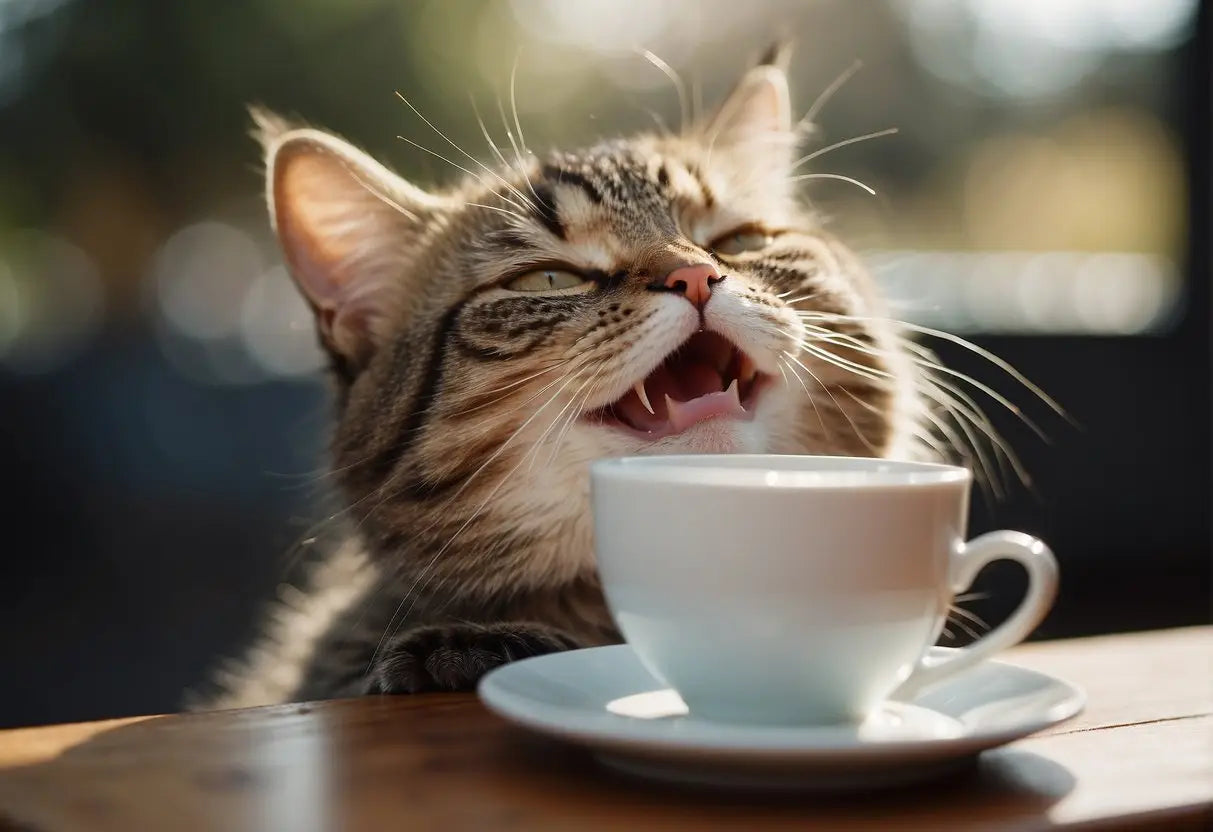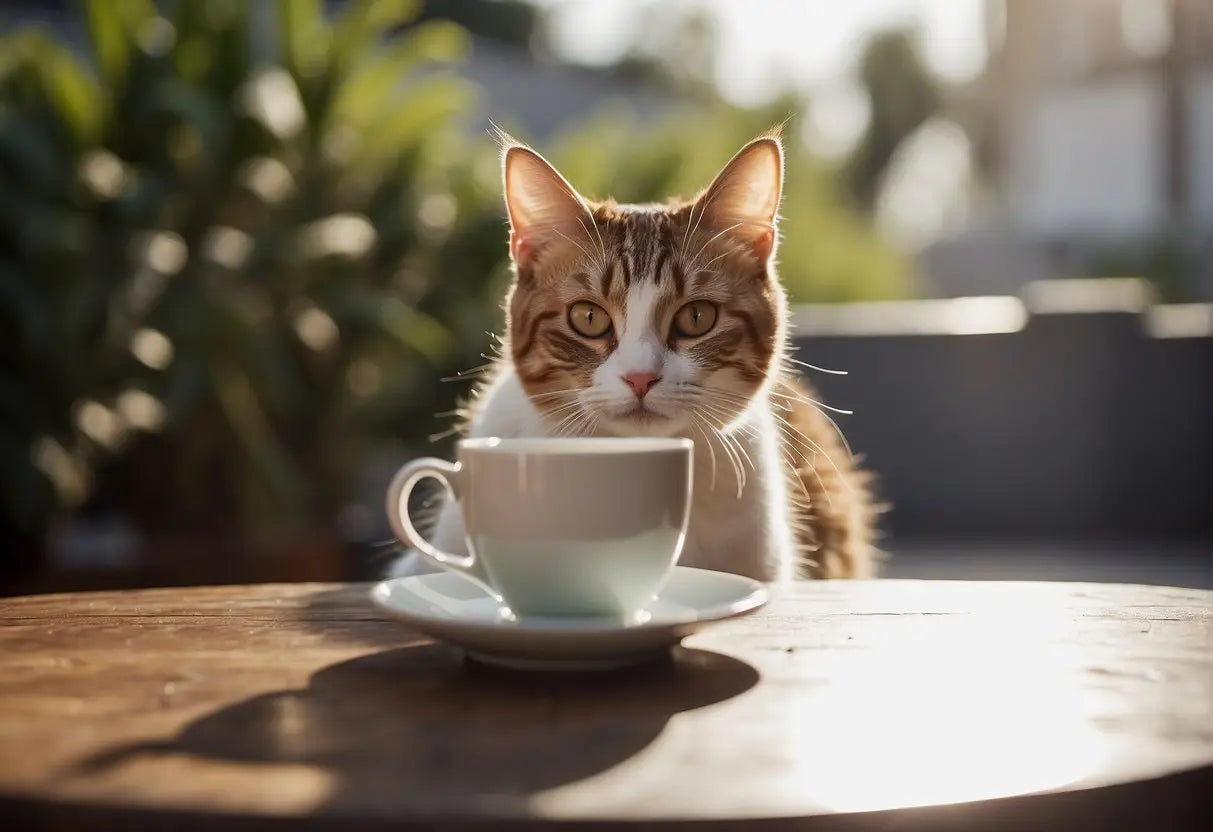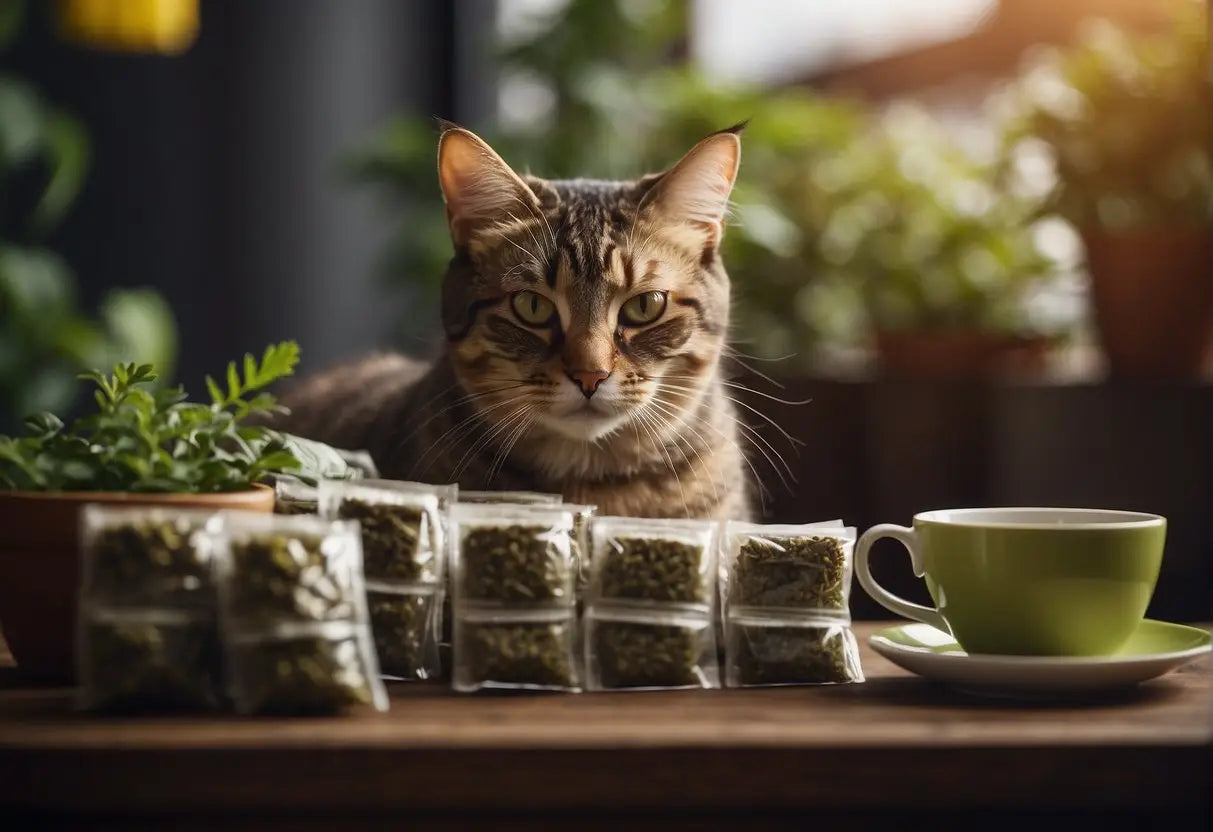Can Cats Drink Tea
When considering whether you can offer tea to your cat, it's imperative to understand the effects of tea ingredients on feline health. Tea contains caffeine, which is harmful to cats even in small quantities. The primary concern is caffeine's stimulatory impact on your cat's nervous system, which can lead to symptoms like restlessness, rapid breathing, heart palpitations, and muscle tremors.
In addition to caffeine, teas may also contain other ingredients and flavorings, some of which might be harmful or toxic to cats. For instance, theobromine, another stimulant found in chocolate, is sometimes present in teas, especially those with chocolate flavorings.
| Components | Considerations for Cats |
|---|---|
| Caffeine | Highly toxic |
| Theobromine | Potentially dangerous |
| Artificial Sweeteners | Risky (especially Xylitol) |
| Essential Oils | Can be toxic |
Herbal teas vary greatly in their ingredients and potential effects on cats. While some herbs can be safe in small amounts, others can be detrimental to your cat's health.
Bestsellers
If you are ever uncertain whether a particular tea is safe for your cat, it is best to consult a veterinarian. In general, it's safer to keep your cat away from tea and offer them fresh water instead. Remember that cats require a diet tailored to their specific nutritional needs, and human foods or beverages do not align with these requirements.
Potential Benefits of Tea for Cats

When exploring the potential benefits of tea for cats, it's vital to consider the specific properties of tea that may impact feline health. These include antioxidant levels and the possibility of hydration.
Antioxidant Properties
Tea is rich in antioxidants, such as polyphenols, which can help combat oxidative stress. For cats, these antioxidants may theoretically contribute to a stronger immune system. However, it's important to note that the beneficial impact of these antioxidants on cats hasn't been extensively studied.
- Polyphenols: May help protect cells from damage.
- Catechins: A type of polyphenol that potentially supports immunity.
Hydration Considerations
Providing your cat with enough fluids is essential for maintaining their health. Tea could potentially serve as an additional hydration source.
- Water Content: Tea is mostly water, which can support hydration.
- Caffeine-Free Varieties: Only non-caffeinated teas should be considered since caffeine is harmful to cats.
Risks of Giving Tea to Cats

Before offering your cat any tea, it's crucial to understand the potential health risks. Tea can be harmful to cats due to several ingredients and compounds it contains.
Caffeine Toxicity
Tea contains caffeine, which is toxic to cats. Even small amounts can cause:
- Restlessness
- Rapid breathing
- Heart palpitations
- Muscle tremors
Cats lack the ability to metabolize caffeine efficiently. This can lead to a buildup of toxins and result in serious health complications.
Upset Digestive System
Cats have sensitive digestive systems, and tea may cause:
- Vomiting
- Diarrhea
These symptoms occur because cats' digestive systems are not adapted to handle many of the compounds found in tea.
Dairy and Sugar Concerns
If you add dairy and sugar to tea, be aware that:
Lao Ban Zhang
- Lactose intolerance is common in adult cats; dairy can cause digestive upset.
- Excess sugar can lead to weight gain and dental problems.
It's best to avoid giving cats tea with additives, as their bodies are not designed to process such substances.
Herbal Teas and Cats

When considering herbal teas for cats, it's important to distinguish between safe and potentially toxic herbs. Below are lists of herbs by category for your reference.
Safe Herbs
-
Chamomile: Often used to soothe your cat’s stomach and reduce anxiety.
-
Valerian: Can stimulate playfulness and act as a sedative for overly anxious cats.
-
Catnip: Well-known for its stimulating effect on cat behavior, completely safe in reasonable amounts.
Dangerous Herbs
-
Pennyroyal: Highly toxic, even in small doses, can lead to liver failure.
-
Tea Tree: Can be poisonous if ingested or absorbed through the skin, leading to weakness and tremors.
-
Comfrey: Contains alkaloids which may damage the liver if consumed over a long period.
Safer Alternatives to Tea
When considering hydrating your cat, stick with plain water. It’s the best beverage to ensure they remain hydrated without any harmful side effects. Water doesn't contain caffeine, and it supports your cat's kidney function and overall health.
If you wish to offer a treat, consider these options:
-
Catnip Tea (Caffeine-Free):
- Prepare with cool water.
- It may help in soothing your cat.
-
Commercially Prepared Cat Milks:
- Lactose-free options prevent digestive upset.
- Serve these sparingly as a special treat.
-
Broths:
- Unseasoned, boneless chicken or beef broth can be alluring.
- Ensure it's free from onions, garlic, and excessive salts.
| Beverage | Notes |
|---|---|
| Catnip Tea | Offers a calming effect, always serve without caffeine. |
| Cat Milks | Designed specifically for cats, avoid regular dairy milk. |
| Broths | Serve in moderation, check for harmful ingredients first. |
Always provide fresh water and monitor your cat's reaction to any new treat. Your vet can offer personalized advice tailored to your cat's needs. Keep these treats occasional to maintain a balanced diet for your cat.
How to Introduce New Beverages to Cats
When introducing new beverages to your cat, it's crucial to proceed with caution and monitor for any adverse reactions. Always consult your vet before introducing non-water beverages, as some can be harmful to felines.
Step 1: Choose a Safe Beverage
Ensure the beverage is cat-safe. Most teas contain caffeine, which is toxic to cats. However, caffeine-free herbal teas like chamomile or peppermint may be acceptable in small quantities.
Step 2: Mix With Water
Start by mixing a small amount of the herbal tea with your cat's drinking water. This should not exceed a teaspoon of tea to a bowl of water.
| Quantity | Beverage | Water |
|---|---|---|
| 1 teaspoon | Herbal tea | Water bowl |
Step 3: Introduce Slowly
Offer this diluted beverage and observe. If your cat shows any signs of distress or ill health, discontinue immediately and consult your vet.
Step 4: Observe Your Cat
Keep an eye on your cat for any unusual behavior or signs of digestive upset. Normal signs are curiosity and cautious tasting.
Remember:
- Never force your cat to try the beverage.
- Avoid any tea with caffeine.
- Monitor your cat’s hydration. Water should remain the primary drink.
Stick to these guidelines for a safe introduction of new beverages to your cat’s diet.
← Older post Newer post →











